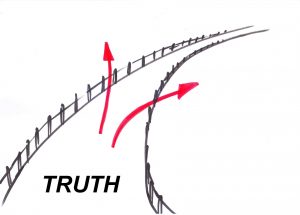ECONOMY 04 – WORK & REST
4th Commandment – Work and Rest Deu 5:12-15
“Observe the sabbath day and keep it holy … Six days you shall labor, but the 7th day is a sabbath to the LORD … neither your son, daughter, slave, ox, donkey, livestock, alien in your town … so that they may rest as well as you.”
- Why are we commanded to work? What is the purpose of work?
Origin and Purpose of Work Gen 2:15, 1:28
- When did work first start? “The LORD God took the man and put him in the garden to till it and keep it”
- God commanded us to work before sin ever happened! therefore:
> Work is not a punishment for sin
> Work was part of the perfect creation
> Work is good. Work is good for us - What is the purpose of work?
> to earn enough to feed ourselves & our families
> to produce necessary things (food, clothes, houses, …)
> to produce useful things (work tools, bucket, light bulb, …)
> to produce beautiful things (fashion, decoration, fun, entertainment, …)
> to serve others, and to glorify God
> our satisfaction, significance, dignity, self-respect … we want something to last
Worldviews concerning Work

The Eastern, Hindu, Buddhist or Animist view of Work
- Work is a burden, a pressure, a curse
- Work has no value in itself
- Work is what I do because this miserable body still binds me to the physical world, so I hunger, sweat, thirst, get tired
- Nirvana = my spirit is freed from this body / world
- The moment my needs are met, I drop work
- This physical world is not really real and not worth me laboring for it

The Western, Post-christian, Atheist, Modern view
- Work is important
- To be skilled at work is looked up to
- Most people work quite hard
- Work is valuable for producing the goods I want
- My purpose for working is to gain the money that allows me to buy the lifestyle, comfort, luxury I want
- Work is valuable but used selfishly

The Biblical view of work
- Work is good, commanded and affirmed by God.
- All honest work is honorable
- There is no ‘higher’ and ‘lower’ work, all work is important
- There is no ‘higher’ and ‘lower’ work, all people do all sorts of work
- Work is to produce essential, useful & beautiful things
- This world is real and God-given and therefore worth my work for it.
- Work is to serve others and to glorify God
- Work gives us satisfaction, honor, importance, significance & self-respect
Old Testament thoughts on Work
- Work was part of normal life … Adam was a farmer, Abraham a shepherd, Joseph a slave / manager / government leader, Amos a dresser of sycamore trees& prophet, Daniel a government adviser, Nehemiah a cup bearer & governor, Peter a fisher, Jesus a carpenter, Paul a tent maker…
- Jews: every boy, however educated, is taught a practical trade by his father
- In Proverbs there are 29 challenges to diligence or condemnations of laziness …
- Pr 10:4 “a slack hand produces poverty, but the hand of the diligent makes rich.“
- Pr 31 shows praise not for a submissive, inactive, pretty wife but rather for a fully active, hard working woman with skill, authority, purpose and leadership
Jesus and Work
- Did Jesus work? He is about his father’s business at 12 years (Lu 2:49)
- He is a carpenter till 30, but spends only around 3 years in ministry
- Joseph, his ‘father’, is last mentioned when Jesus is 12, he probably died early >
- Jesus soon main provider for his family (his mother, 4 brothers and 2+ sisters (Mt 13:55) … He would be responsible to teach the trade to younger brothers
- Jesus during ministry was pressed by crowds, healing all (Mk 3:10)
- Jesus during ministry is neither withdrawn hermit nor big boss, but lived normally
- Jesus: “My Father is still working, and I also am working.” (Jn 5:17)
- Jesus works! God the Father himself works! In the sinless world there was work!
- Therefore: We will work in heaven! … but without the bad effects of sin: Ge 3:18-19 “by the sweat of your face you shall eat bread …”
- God demands diligence and hard work, laziness is not an option

Command to Rest – The Origin of the Sabbath
Deu 5:14 “But the 7th day is a sabbath to the Lord your God, you shall not do any work.”
- Where does the Sabbath first start? … God himself first kept it
Gen 2:1-3 “And on the 7th day God finished the work that he had done, and he rested on the 7th day from all the work that he had done. So God blessed the 7th day.”
- God himself keeps the Sabbath! Is God tired? … presumably not
- Why then? God stops to enjoy the work of his hands
- He himself follows the seven day rhythm, actually the whole world follows it
- God writes the number seven into the moon orbit, rainbow, female body, …
Purpose of the Sabbath rest?
Deu 5:12-15
- Showing us that God is not harsh but caring, desiring relationship
- rest physically / mentally / emotionally / spiritually
- refreshing, restoration, replenishing and maintenance of life
- time to connect with God / pray / reflect / evaluate / listen / re-direct
- to enjoy God / nature / the work of our hands / relationships
- to have time for others (family, believes, church)
Who gets a Sabbath Rest?
Deu 5:14 “Neither your son, daughter, slave, ox, donkey, livestock, alien shall work.”
- How about the wife? Should she work? > No, she is included in the ‘you’
- No double standard in work: all work 6 days, and all rest 1 day … whether master or slave, whether man or woman
- You must grant weekly holidays to your workers! Example: Bangladeshi maids.
- The 10 commandments enshrines workers’ rights!
- Why? … Remember you were slaves in Egypt
- Also: Ox, donkey, livestock … working animals need to recuperate
- You must grant weekly holidays to your working animals!
- The 10 commandments even enshrines animal rights!
- Your chicken can’t tell whether you gave it a holiday or not, but your ox will!
Sabbath in the New Testament
- Over the centuries the Jews had developed an ‘Oral tradition’ or ‘traditions of the elders’ around the Sabbath law (and other issues).
- These additional laws meant to explain and safeguard the original Law of Moses, but had become a legalistic burden on people
- Jesus keeps the Law of Moses, but not the oral traditions.
- When challenged Jesus takes them back to the original meaning and purpose:
Mrk 2:27-28 “Then he said to them, “The sabbath was made for humankind, and not humankind for the sabbath; so the Son of Man is lord even of the sabbath.”
- Today’s controversy about the day to rest? … Rather focus on the meaning and purpose of the sabbath.
- Illustration: Truth as a road with two fences. Some people tend to fall off the road on the one side, others on the other, therefore the double command:
- Do work hard 6 days! Do rest 1 day!
God’s challenge to the lazy and irresponsible
- If you want to be lazy, I suggest you change religion
- To be lazy means you not have understood anything about the way God works
- Proverb: “Most people reach what they aim for, which: nothing.”
God’s challenge to the workaholics and overly responsible people
- Can things be ‘good enough’ or do you always feel you should have done more?
- Loren Cunningham’s quote: “To rest is to trust God with your unfinished work”

Work Attitude addressed in the New Testament
1 Thess 4:10-12 “We urge you … to aspire to live quietly, to mind your own affairs, and to work with your hands, as we directed you, so that you may behave properly toward outsiders and be dependent on no one.
2 Thess 3:7-12 “We were not idle when we were with you, and we did not eat anyone’s bread without paying for it; but with toil and labor we worked night and day, so that we might not burden any of you … Anyone unwilling to work should not eat. … we command and exhort in the Lord Jesus Christ to do their work quietly and to earn their own living.
- work diligently, do not depend on others when you could earn yourself!
- Be responsible, working, self-providing, no burden, able to give
- No indulging the lazy at the cost of the faithful… no welfare mentality
Eph 6:5-6 “Slaves, obey your earthly masters with fear and trembling, in singleness of heart, as you obey Christ; not only while being watched, and in order to please them, but as slaves of Christ, doing the will of God from the heart. Render service with enthusiasm, as to the Lord and not to men, knowing that whatever good we do, we will receive the same again from the Lord, whether we are slaves or free.”
Col 3:22-24 “Slaves, obey your earthly masters in everything, not only while being watched and in order to please them, but wholeheartedly, fearing the Lord. Whatever you task, put yourselves into it, as done for the Lord and not for your masters, since you know that from the Lord you will received the inheritance .. you serve the Lord Christ.”
- work respectfully, wholeheartedly, self-motivated … not by pressure
- do not be motivated by pleasing others, promotion, advantage
- work as unto the Lord, not men, he is the true & fair evaluator
- A Proverb: “A work worth doing is worth doing well.”
1 Tim 6:1-2 “Let all who are under the yoke of slavery regard their masters as worthy of all honor, so that the name of God and the teaching may not be blasphemed. Those who have believing masters must not be disrespectful to them on the ground that they are members of the church; rather they must serve them all the more, since those who benefit by their service are believers and beloved.”
- A good work attitude is a powerful witness to masters, bosses, co-workers
- During the first 3 centuries, the gospel spread to the Roman upper class mostly through Christian slaves
- Christians should be the best workers a company has
- In our ability to work we are God-like!
- We cannot make our calling a reality without hard, consistent, faithful work.